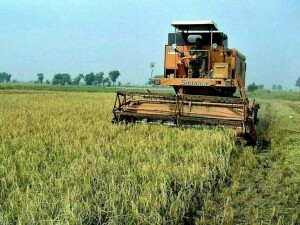PM Sharif Calls for Agriculture Sector Overhaul
ISLAMABAD: Prime Minister Shehbaz Sharif expressed strong dissatisfaction on Saturday with the nation’s antiquated farming practices, advocating for a comprehensive and immediate transformation of the country’s struggling agricultural industry.
During a high-profile meeting attended by scientists, business leaders, and government officials, Sharif openly criticised the decades of mismanagement, obsolete methods, and squandered prospects that have forced the country to import crops it once produced in abundance. He stated that Pakistan was formerly self-sufficient in wheat and cotton. However, he noted that the per-acre yield is currently lower compared to developed nations, leading to cotton imports despite a significant rural population with untapped potential.
He also voiced concerns about the wasteful use of resources and inadequate coordination in the past, citing examples of service companies established to assist small farmers that lacked proper supervision.
Agri-tubewells in Balochistan: Stock of power sector receivables reaches Rs530bn
He additionally mentioned that while certain institutions are now manufacturing agricultural machinery locally, previous reliance on imports, such as combine harvesters, had impeded progress.
Sharif affirmed that the government will prioritise input from stakeholders to develop a strategic framework aimed at enhancing agricultural productivity and resilience.
He specifically criticised the bureaucracy’s previous failures, highlighting poorly managed service companies intended to support small farmers that ultimately proved ineffective. He also emphasised the significance of promoting agricultural cottage industries, supporting small and medium enterprises (SMEs), and improving crop storage facilities.
“There is a noticeable deficiency in off-season crop storage and small-scale value-addition plants,” he stated, suggesting that these could create job opportunities for rural youth and stimulate exports.
The meeting participants identified critical challenges to agricultural productivity, including ineffective irrigation, subpar seeds, inadequate land preparation, and unscientific fertiliser application.
They suggested focused reforms, such as improved water management systems, promotion of nutrient-rich crops through advanced scientific methods, expansion of public-private training programs for farmers, digitisation of agriculture by improving internet access in rural areas, creation of a centralised farmer database, and utilisation of blockchain and QR code technologies to monitor the distribution of agricultural inputs.
The meeting also advocated for targeted research on soil fertility and modern extension services, stressing the importance of mechanized farming and improved market infrastructure.
Enhancing access to agricultural finance and making institutional credit more accessible were also identified as priorities. The participants encouraged both domestic and international investment in agriculture and urged the government to mobilise financial institutions to foster sectoral growth.
Sharif acknowledged the necessity of legal and administrative changes to support implementation, advocating for transparency and the inclusion of experts, farmers, and stakeholders in the policymaking process to ensure sustainable results. At the meeting’s conclusion, the prime minister announced the establishment of five specialised working committees covering various thematic areas, instructing them to provide actionable recommendations within two weeks.
The meeting was attended by Federal Minister for Climate Change Dr Musadik Malik, Minister for Information Technology Shaza Fatima Khawaja, Information Minister Ataullah Tarar, and other senior officials and experts from the agricultural sector.



Comments (0)
No comments yet. Be the first to comment!
Leave a Comment